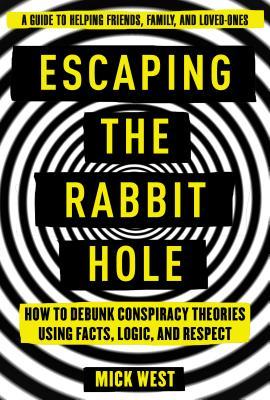What do you think?
Rate this book


304 pages, Hardcover
First published September 18, 2018
It’s also tempting to simply label conspiracy theories as either "mainstream" or "fringe." Journalist Paul Musgrave referenced this dichotomy when he wrote in the Washington Post: Less than two months into the administration, the danger is no longer that Trump will make conspiracy thinking mainstream. That has already come to pass. Musgrave obviously does not mean that shape-shifting lizard overlords have become mainstream. Nor does he mean that Flat Earth, Chemtrails, or even 9/ 11 Truth are mainstream. What he’s really talking about is a fairly small shift in a dividing line on the conspiracy spectrum. Most fringe conspiracy theories remain fringe, most mainstream theories remain mainstream. But, Musgrave argues, there’s been a shift that’s allowed the bottom part of the fringe to enter into the mainstream.
These false conspiracy theories are a problem. They hurt individuals by affecting their life choices, in terms of money, health, and social interactions. They hurt society by distracting from the very real problems of corruption and decreasing citizens’ genuine participation in democracy.
–and–
Helping a friend break free from the spiral of conspiracism is not easy and it will take time. No matter how politely you do it you are still challenging some fundamental aspects of their identity. They will push back, and they may fight you. But it is an immensely valuable thing that you are doing for them. Freeing their minds from the burden of conspiracy theories and letting them see and participate in the world more as it really is. Do not give up. The stories in this book prove that people do get out with help.
Most people can escape the rabbit hole of conspiracy thinking because most people who get stuck down there are ordinary people like you and me. They are not, as a rule, any more or less crazy than the general population. People don't get sucked into conspiracy theories because they are mentally ill or deficient, they get sucked in because they watched some videos at a point in their lives when those videos resonated. They stay down there because they lack exposure to other information sources. They lack relevant facts, they lack context, and they lack perspectives on, and other ways of thinking about, the issues. These are all resources you can bring to them. The most effective way to bring that information to your friend is with honesty and with respect. Mocking and harsh criticism do not work because people push back when they feel threatened. Even if you feel their position is ludicrous, respectful disagreement works better than derision.